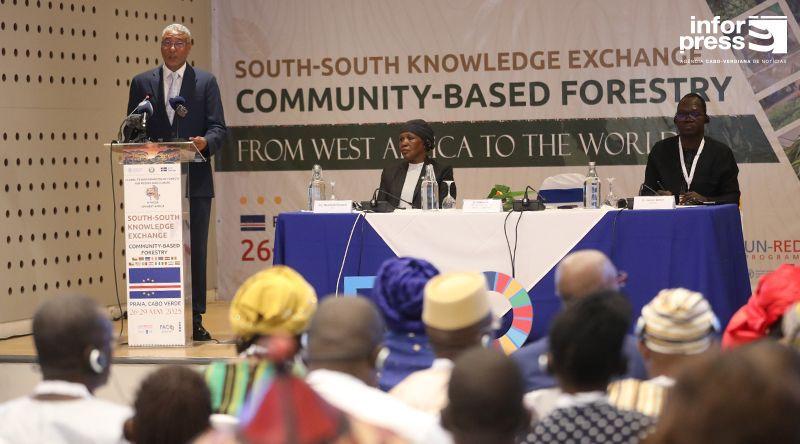Africa-Press – Cape verde. The Minister of Agriculture and Environment acknowledged this Monday the importance of community forests in the fight against climate change, highlighting the role of local communities and indigenous peoples in mitigating its effects and conserving biodiversity. Gilberto Silva made these considerations today when presiding over the opening of the workshop “South-South knowledge exchange on community forests: from West Africa to the world”. “We are therefore aware of the importance of this South-South exchange on community forests, from West Africa to the world, since, undeniably, community forests are a fundamental strategic instrument in the global fight against climate change”, he said. According to the same source, rural communities and indigenous peoples play “a central role” in mitigating the effects of climate change and conserving biodiversity. In the case of Cape Verde, he noted that, originally without forest cover, the country has been actively building its forest ecosystems since 1975, currently covering around 55 thousand hectares of forested areas “thanks to the support of international cooperation” and the “mobilization of local communities”.
“In this process, there is no age-old forestry tradition like in the case of our sister countries, here, neighbors in our region, especially with regard to management and community support, and so we have a lot to learn from neighboring countries”, he acknowledged.
He also stated that Cape Verde is committed to a “participatory forestry” approach, with the aim of consolidating community forests in the future, expressing expectations regarding the results of the workshop and the future Praia Declaration, which should guide forest governance policies in the region.
For her part, the interim representative of the FAO in Cape Verde, Moshibudi Rampedi, highlighted the relevance of the workshop, evidenced by the diversity of participants, from community leaders to international experts.
She stressed that forests are essential for rural livelihoods, food security, climate adaptation and ecological stability, recalling that up to 1.7 billion people in the world depend directly on forests.
However, she expressed concern about the reduction in forest cover caused by practices such as illegal logging, slash-and-burn agriculture and uncontrolled forest fires, reinforcing the importance of international collaboration to address common challenges.
The event, which is being promoted by the Food and Agriculture Organization of the United Nations (FAO), in partnership with the Economic Community of West African States (ECOWAS) and the Swedish International Development Cooperation (SIDA), will take place from today to Thursday, 29, in the city of Praia.
It brings together experts and representatives from West Africa to exchange experiences on community forests, which, according to the minister, citing official data, are responsible for the livelihood of 53 percent (%) of the rural population in the region.
For More News And Analysis About Cape verde Follow Africa-Press






